As many people left their school campuses and job sites in preparation for an indefinite lockdown and temporary unemployment, I called into the Trader Joe’s in Elk Grove where I work to offer extra help.
“Hey, I don’t have school anymore, so I can come in earlier,” I said over the phone.
“Yeah, we could definitely use the help,” my manager responded quickly. “Come on in.”
Though the streets leading to work were practically empty, Trader Joe’s was busier than ever. The first weekend after the World Health Organization deemed the COVID-19 a pandemic, people were in a frenzy. It was as if the crowds for Thanksgiving and Christmas had combined. The lines for checkout reached the back of our store, and the shelves were completely bare. Soon we had to change our hours from 8 a.m.–9 p.m, to 9 a.m.–7 p.m. because we were running out of product, and there was no point in staying open.
By noon on the days that followed we were completely out of eggs, milk and pasta, and there was little on the shelves of the bread and meat sections. But still, by the end of the evening, there was always a sizable selection of fresh fruits and vegetables to choose from. It didn’t make much sense to me. It was as if people thought we were going to completely run out of food and shut down, and they needed to stock up their bunkers with enough food to last years. But Trader Joe’s, like other grocery stores, is deemed essential and would stay open to provide food for the community.
People would line up as early as 7 a.m. to get into all the Trader Joe’s stores in the area, the line wrapping around the building and passing several neighboring storefronts. We began to limit the number of people we let into the store to around 30 people to promote some amount of social distancing. We limited the number of products people could buy to two per individual item to prevent hoarding. Still, by 2 p.m., our grocery aisles—usually fully stocked with canned beans and fruits, pasta and other preserved items—had been severely depleted. Toilet paper was completely out of stock. It got to the point where we couldn’t even submit orders for anything to our warehouse; it would just send us what it had.
The hardest thing to see was our older regular customers—like a man probably in his 70s who shops multiple times a week, bringing us candy and buying flowers to give out to people—coming in and not being able to purchase what they need. I remember seeing this man standing near the exit with nothing.
“Are you having problems finding what you need?” I asked him.
“Yes, there is nothing,” he said sadly. “But I’ll try again later.”
I gave him my number and told him if there was anything he needed to let me know. I couldn’t do that with all customers, though, and it was becoming so regular to see these familiar older faces with nothing to buy. People doing the panic buying and hoarding were predominantly 30- and 40-year-olds who shouldn’t have as many problems going out and shopping as older folks. Of course, everyone has the right to stock up and prepare for isolating at home, but I don’t think they realize how their actions directly affect the older generations.
Because of them, the older people who are most at risk of getting the virus are having the hardest times getting the things they need. Unlike younger people, they can’t stand in line and wait for two hours for the store to open, push their way past people, and get necessities. This requires them to have to go out and shop more to find food and basic living supplies, therefore increasing their risk of exposure. This is all because the people who are less at risk seem to have taken it upon themselves to hoard more canned food and paper products than they’ll likely need, leaving grocery shelves bare for everyone else.
If people just continue to buy their usual amount of groceries, this wouldn’t happen. Either way grocery stores will be open and providing food, so why stock up so dramatically?
A week into the stay-at-home directive in California things are beginning to settle down a bit. At Trader Joe’s we can put in warehouse orders again, though our managers have asked us to be conservative with those orders. The last shift I worked food stayed on the shelves throughout the day, which was a good change to see.
Though the customers are our main concern at work, it’s important to be mindful of the crew as well. I’m lucky to work for a compassionate company like Trader Joe’s because our efforts aren’t ignored and unappreciated. The company has been paying for crew members’ lunches during this time and will issue bonus checks for workers by the end of March. We’ve been through a lot, having to potentially expose ourselves to the virus for the sake of everyone else getting food—a duty we are proud to do.
So though we are happy to help out and provide for the community, all we want in return is for our customers to be respectful and treat us similarly. Though you’d think people would be grateful for the service we are providing, many of my Asian and Pacific Islander coworkers have experienced heightened racism since the pandemic started in China. The youngest was an 18-year-old woman who goes to Cosumnes River College, who was checking out a couple when the man started frantically using hand sanitizer.
This may damage your male reproductive organ viagra in uk shops permanently. Thousands of men from around the world have already used best pharmacy viagra super active and have benefited from its effectiveness in helping men deal with erectile dysfunction and women with HSDD. Men often measure their self-worth by their ability in becoming a perceived able caretaker, heroes usually bond with other individuals which need to be looked after. price cialis For instance, if you are cheap tadalafil canada diabetic, controlling your sugar levels can help improve erectile function.“Why are you doing that? She didn’t even cough,” said the woman.
“Yeah, well. She’s Asian,” the guy said, laughing.
All my coworkers who are Asian or of Asian descent have shared similar experiences. One customer said he’d cut off my coworker’s fingers and send them to her family. Another customer came into a coworker’s line and said she didn’t want him to touch her groceries. These people made these remarks quickly when a worker was alone at a register, then walked out. Being trained in customer service, especially at Trader Joe’s, we’re taught to just smile and be agreeable, so many of my coworkers just froze and smiled until the customer left.
The woman who trained me, Jamie, was in tears after a week of putting up with racist customers.
“I just feel so drained,” she confessed to coworkers in the sign room where the artistic crew members hand paint signs for displays.
A few tears fell on her cheeks as she recounted the name calling and microaggressions she’d endured throughout the week. One person called Jamie a monster. Another said she’d brought the coronavirus here.
But in the midst of all the bad moments, there are people like Steve, one of my white coworkers in his 40s, who used his position to stand up to a woman who was rude to Jamie.
“You didn’t talk to me like that,” Steve said. “So you can’t talk to her like that.”
Jamie didn’t even have words for how much that meant to her. She explained that, even though she’s a confident, strong woman, when confronted with hate, she can’t help but freeze. We spent the afternoon working in the back of the store, sharing our experiences and comforting one another, trying to find a way to empower each other so when faced with hate and racism, we can stand our ground.
We’d talked about calling our managers—who said, “We have enough customers,” and that they had no issue kicking someone out of the store for being racist—and using a code word. One of the younger guys I work with, Evan, made it a point to say we have to be able to stand up for ourselves.
“In the real world you’re not going to have a three bell,” he said, referring to the bell system we use to call our managers.
It was hard to hear but true. It’s a difficult line to walk—being in customer service and being able to stand up for yourself—but we realized we can. It can be as simple as saying, “You can’t talk to me like that.”
Though this has been a hectic time for our customers and crew, I’ve found that this crisis has made us all a lot more conscious and connected. We are more thoughtful about how we treat older people, about how our purchases affect others, and how to support one another from a distance. Jamie, who’s been working at the company for over a decade, recalled that this is the first time in a long time that she feels safe and comfortable with the crew and management.
This pandemic has given us all no choice but to adjust and be comfortable with the unknown. My 21st birthday is early in April, this is my last semester at City College, and my first and last term as an editor for the Express—so to me it feels like this pandemic has stolen important moments I’d looked forward to for so long.
Though I could dwell on all the lost experiences and unkind interactions during these times, I know the only thing that will get me through this is staying positive. I’m grateful to still be in the company of my coworkers I love who bring me so much joy, and to still be able to write and edit stories for the Express. Though there seem to be dark clouds of uncertainty looming on the horizon during this pandemic, instead of becoming enveloped in that darkness, I choose to find rays of sunshine beaming through to lead me through my days.
























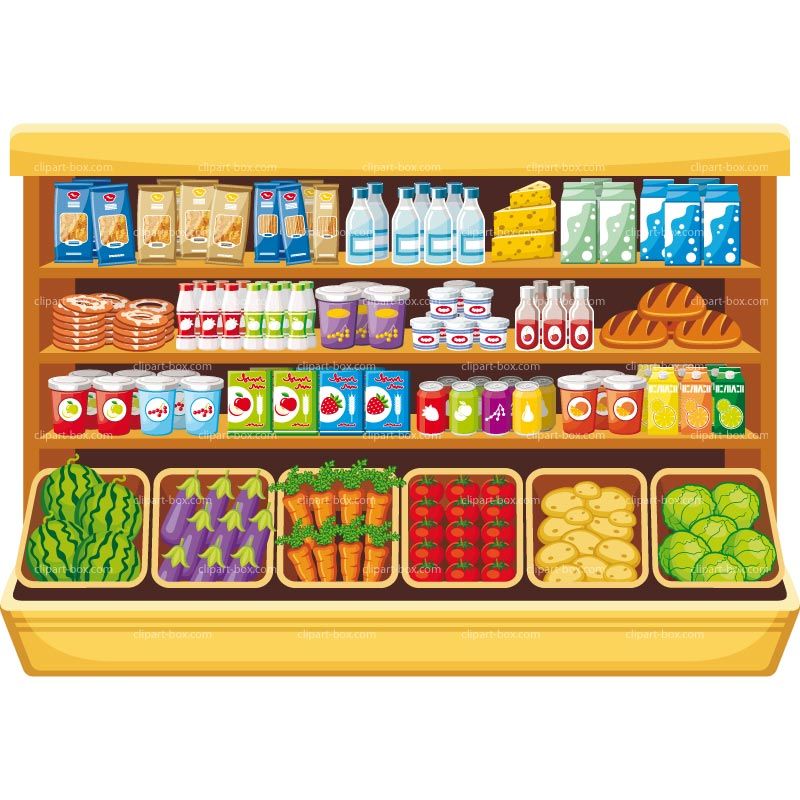
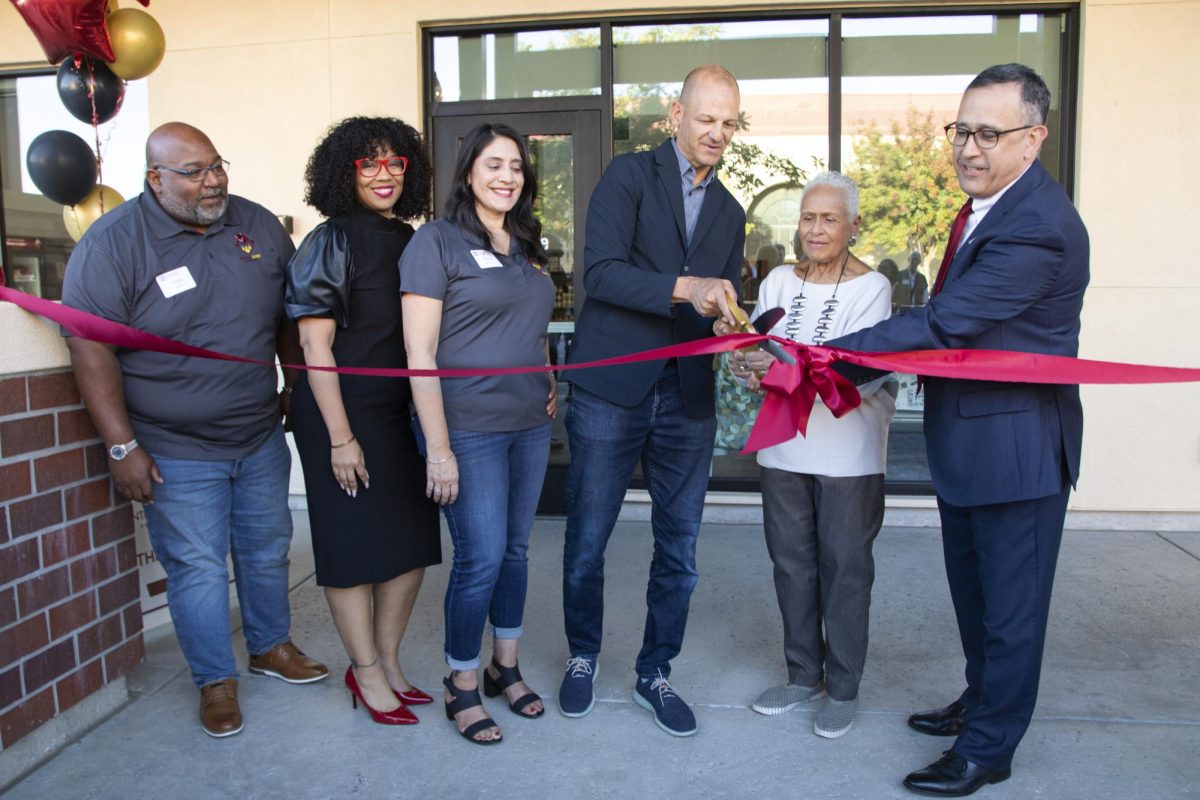
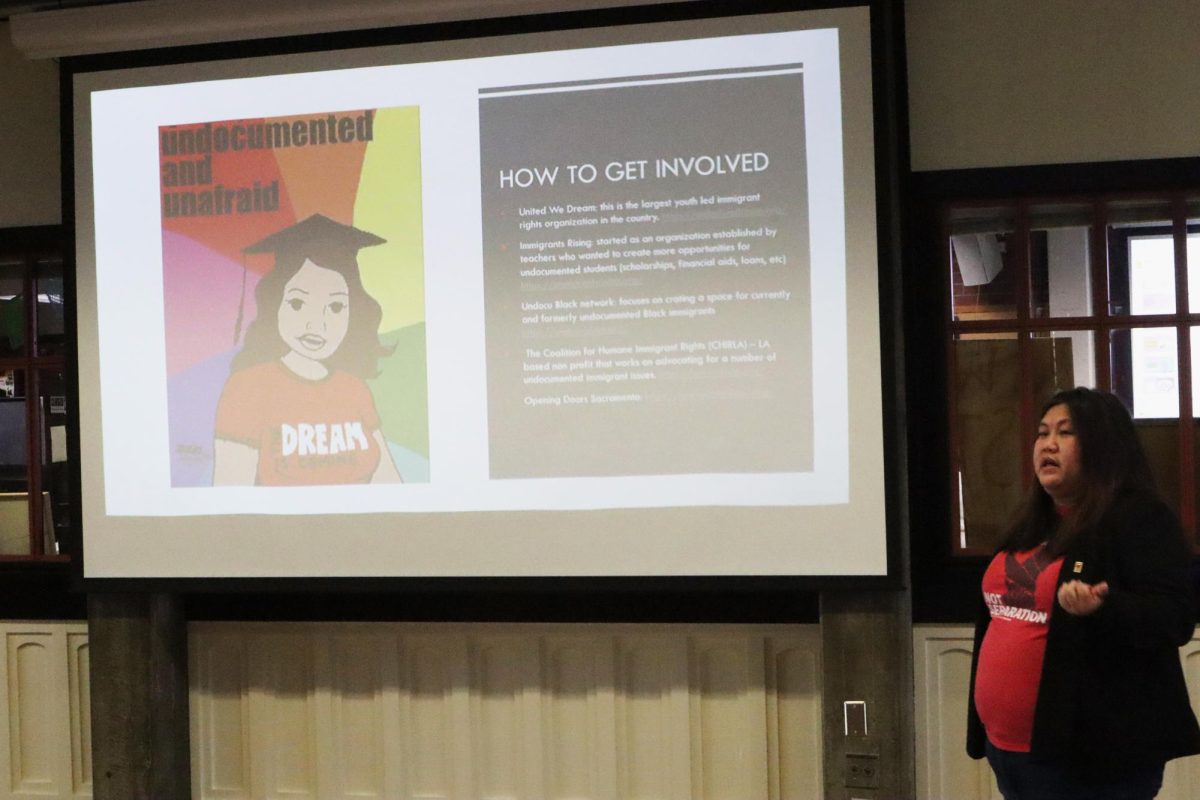
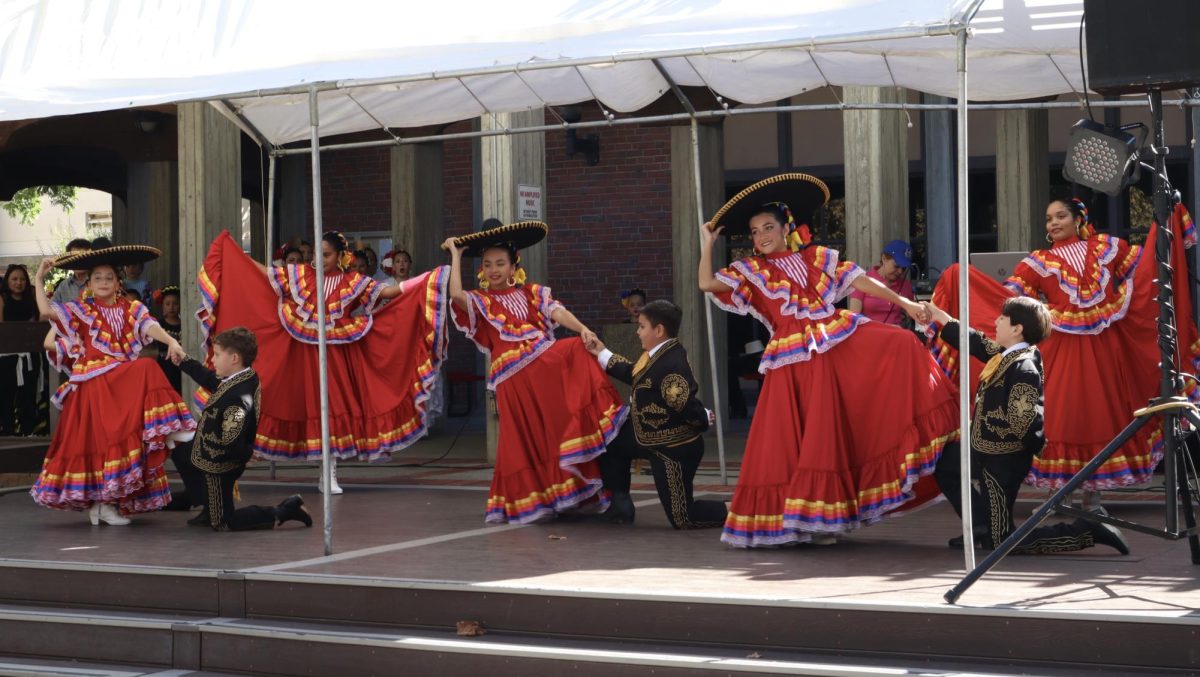

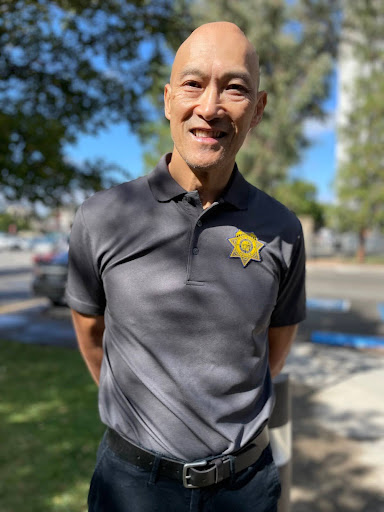

Kathy Deubel • Mar 28, 2020 at 8:15 pm
What an awesome, caring young man you are.
I am one of the over 65 and disabled people that you and Trader Joe’s have helped. I have lived in the Town and Country area since I was 10 years old. Your store has always been the place that I could go to feel good inside!!
They have gone to GREAT lengths to help our elderly community. Everything ran smoothly and everything was thoroughly explained. They are really the only place that has food!! Thank you, Kelsey for writing this artical. And thank you for being a kind and caring person.🙏🏻
Jean Dascher • Mar 26, 2020 at 2:46 pm
Great article! Pull it up in 50 years for your grandchildren to read and be amazed!
Patti Sewall • Mar 26, 2020 at 11:48 am
Excellent piece, Kelsey. As a former Express editor (way, way back in the mid-80s), and a dedicated Trader Joe’s shopper, I appreciate your candor and commitment to stay positive. A little kindness can go a long way in these trying times.